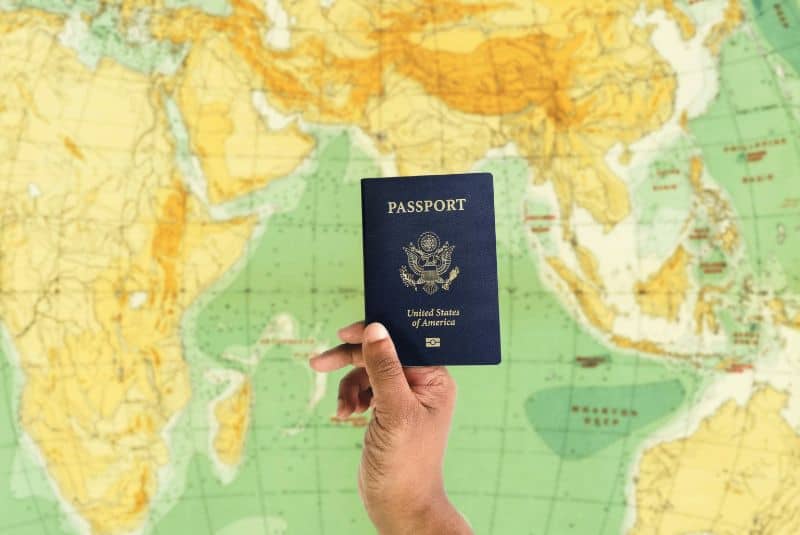How Long Are You Required to Stay in the U.S. to Apply for Naturalization?

You’ve likely heard the old saying, “Patience is a virtue,” … but waiting in immigration limbo to apply for naturalization (citizenship) definitely tests that virtue.
So, how long do you really have to stay in the United States before you can get citizenship? The short answer is:
- 5 years continuous residence (or 3 years if married to a U.S. citizen)
- 30 months of physical presence in 5 years (18 months if married to a U.S. citizen)
- 3 months residence in local USCIS jurisdiction district
We realize that’s not what you wanted to hear. But let us walk through exactly what this all means, along with other time criteria you must meet.
What Does “Continuous Residence” Mean for Naturalization Eligibility?
When reviewing naturalization applications, U.S. immigration officials look very closely at whether you’ve accumulated enough physical presence and continuous residence in the country.
For most standard routes to citizenship status, you must generally prove:
- 5 years of continuous residence in the U.S. immediately prior to submitting your application
But what qualifies as “continuous”?
Essentially, it means maintaining live, active status in the country over that 5-year stretch without extended breaks away. Some temporary trips abroad are normally fine without disrupting continuity.
For instance, vacations or business travel normally totaling less than 6 months outside the U.S. over the 5 years won’t put continuity in jeopardy. Just don’t push it too close to the 6-month cutoff.
Lengthy absences definitely can threaten your continuous residence, though. Any single trip exceeding 1 year abroad will automatically disrupt the 5-year clock.
Immigration law gets really complex, so consult with an attorney if you have longer overseas stays to assess options. There may still be ways to meet another formula called “physical presence” to preserve naturalization eligibility.
How Is Physical Presence Calculated for Naturalization Eligibility?
Along with continuous residence, citizenship applicants must also prove a certain amount of overall physical presence in the United States.
For standard eligibility categories, you must show:
- At least 30 months (2 1/2 years) of physical presence during the 5 years right before submitting your citizenship application
This provides some flexibility if you’ve had lengthier overseas trips that disrupt the continuous residence period. Even if you fall short of the full 5 continuous years, accumulating at least 30 months of total physical presence within the prior 5 years can still make you eligible.
The Exception for Spouses of U.S. Citizens
There is one exception where the time requirements are shorter – for spouses of American citizens.
If you are married to a U.S. citizen and applying for marriage-based citizenship, the thresholds are reduced to:
- 3 years of continuous residence
- 18 months of physical presence
So, in the case of this special category, you’d only need 3 continuous years without extended gaps plus 18 months of cumulative presence within the preceding 3 years.
Meeting In-State Residency Rules
Beyond the overall residency timeline, there is one final wrinkle – you must also prove to maintain a residence in the specific locality where you are filing for adjustment of status for at least 3 months immediately before submitting the citizenship application.
So you can’t just hop from state to state up until the point of walking your paperwork into USCIS. You need 3 months minimum of living wherever you declare as your official state of residence in the application forms.
Exceptions for Extended Overseas Work
While most naturalization applicants must strictly prove 5 continuous years of U.S. residence, there are rare exceptions if you worked abroad for certain government entities or religious organizations.
Specifically, you may qualify to file a Form N-470 to preserve continuous residence if you worked overseas for:
- U.S. federal government or military
- U.S. government contractors
- Certain recognized research institutions
- Public international organizations
- Religious denominations or missions
- Other designated groups per immigration law
The key is filing Form N-470 to officially notify USCIS that you intend to retain continuity even while working internationally. This can “stop the clock,” so those overseas days still count towards the 5-year eligibility.
Navigating Citizenship Residency Requirements
There are lots of nuances, exceptions, and ways cases can vary that determine meeting naturalization requirements.
Without careful, professional legal advice, it’s very easy to jeopardize continuity if you travel abroad too long or fall short of the required physical presence by miscalculating days, causing a denial or delay of citizenship.
That’s why working closely with an experienced immigration attorney is so important. We serve as your trusted guide to:
- Accurately document your residency timeline for immigration compliance.
- Strategize handling of overseas travel or moves to preserve continuity.
- Identify alternative paths if you fall short of standard requirements.
- Avoid ANY missteps or errors that could derail securing naturalization.
The risks are too high trying to figure this out alone using free online resources. Our immigration lawyers at the Law Office of Lina Baroudi know all the intricacies when advising clients just like you on meeting residency requirements. Contact us today for more information.
